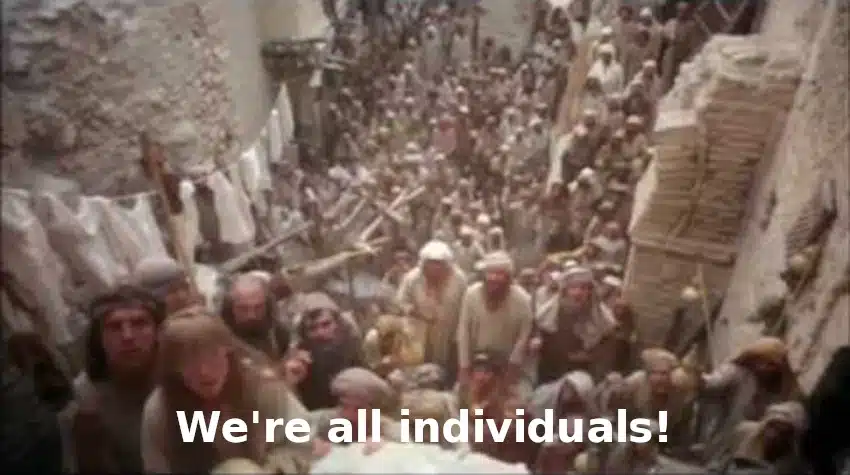Finance minister Enoch Godongwana announced prerequisites for the implementation of the NHI, and they’re insurmountable obstacles.
It was with great relief that I listened to Godongwana’s Budget 2024 speech.
I had laboured under several misconceptions.
One was that the money was finished. But lo and behold, Godongwana managed to find a large pot full of what Margaret Thatcher referred to as ‘other people’s money’. He announced that he would be filching R150 billion of that money to plaster over the cracks in the government’s debt edifice.
Whew! For a minute there, I thought South Africa was broke. Turns out there was still some gristle on the old carcass.
The other was that Godongwana was sure to announce details of how the National Health Insurance scheme would be implemented. After all, we’re only one lost pen away from the NHI Bill becoming the NHI Act.
I, like many others (including the Institute of Race Relations), am convinced that such a scheme would be disastrous for public healthcare in South Africa.
I was relieved, therefore, to hear that the NHI would not be implemented at all; certainly not soon, and perhaps not ever.
Digital patient records
The inattentive listener may have missed that part of his speech: ‘There remain a range of system-strengthening activities, that are key enablers of an improved public health care system, that must be undertaken. Such activities include building a national health information system and digital patient records…’
Etcetera etcetera.
All of the prerequisites he lists, like ‘upgrading health facilities and improving quality of care to ensure that they meet the minimum criteria to be certified and accredited for contracting under NHI’ and ‘strengthening facility and district management in preparation for contracting’, are rather more ambitious than they sound at first.
It is the first one, however, ‘building a national health information system and digital patient records,’ that stands out as an insurmountable hurdle.
It may not seem so to the lay observer, since everyone in the private sector uses computers all the time for storing business records, but the government is still firmly stuck in the 20th century. (Even the National Treasury website is straight outta 1999.)
The latest standard operating procedures of the Department of Health (DoH) for filing and archiving patient records in primary healthcare facilities are firmly rooted in the venerable paper-based tradition.
It has record storage rooms, archives, a record classification system, destruction procedures, designated records managers, and ‘tracking tools’ that consist of paper forms.
At first glance, it seems that the digital age has simply passed the Department of Health by. If it ain’t broke, don’t fix it, eh?
They’ve been trying …
But they did try to fix it. They’ve been trying to introduce electronic health records for decades.
Back in 2009, I was treated to the rare displeasure of listening to a presentation by the then-chief information officer of the DoH, the late Dr Shaheen Khotu, on the National Health Information System of South Africa, and in particular, the provision of electronic health records.
Dr Khotu claimed to have been giving the same presentation for 12 years, which would date the idea of developing electronic health records to 1997.
The repetition had not made his presentation any more polished, however. After careful review of the more than 100 slides to find whatever semblance of coherence I could, I concluded: ‘The notion is a good one. Reality, however, is not only far removed from the ideal, but will never get there.’
Khotu delivered himself of such gems of perspicacious insight as: ‘You have individual records [in the National Health Information System], because averages don’t tell the clinical story. If they did, everyone over 45 should be burying themselves already.’

I called Khotu the department’s chief incompetence officer. (I felt a bit bad about that when his daughter afterwards informed me that he was dying of cancer and I was being mean, but facts are facts.)
So when I read documents such as the National Digital Health Strategy for South Africa 2019 – 2024, from my vantage point at least 27 years after the idea was first mooted, and 15 years after being instructed on the glorious electronic health project by Dr Khotu, forgive me for being a little cynical.
‘Yet to be developed’
The strategy document says, ‘The diagnostic, treatment and billing modules needed for an [electronic health record] in the context of NHI are yet to be developed.’
What had these people achieved in the decade prior to 2019? And what have they done in the five years since then?
Now, the finance minister says that ‘building a national health information system and digital patient records,’ still needs to be done, before the NHI can be rolled out.
I take this as signifying that the NHI will never be rolled out. Not soon enough to matter, in any case. For that excellent news, I heartily thank minister Godongwana.
[Image: StockSnap from Pixabay]
The views of the writer are not necessarily the views of the Daily Friend or the IRR
If you like what you have just read, support the Daily Friend

